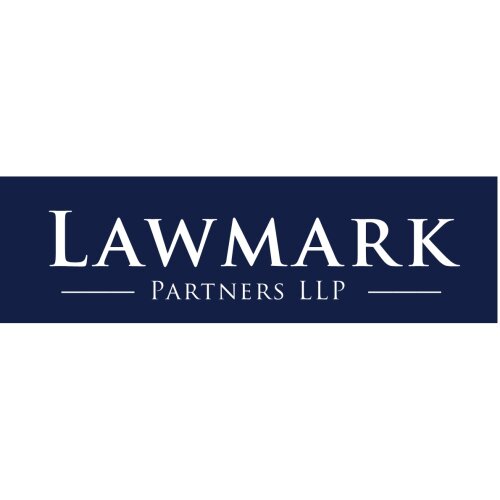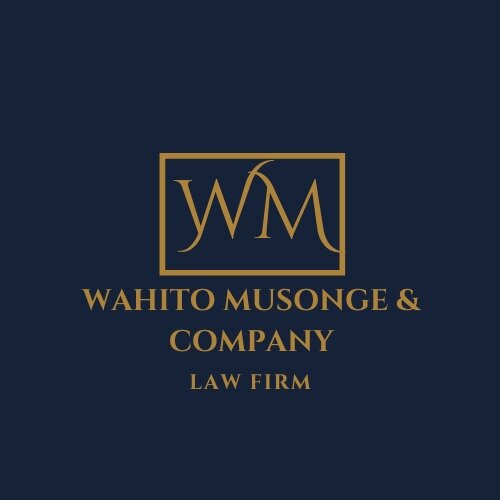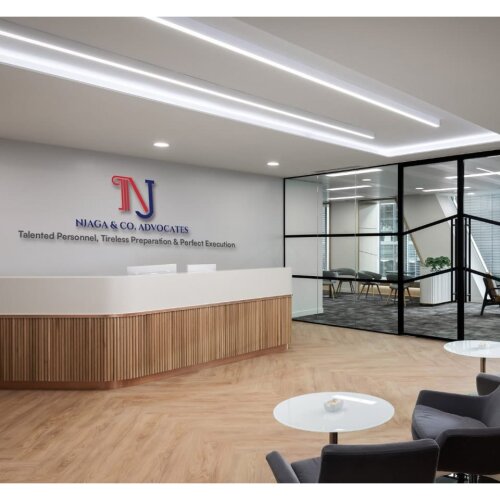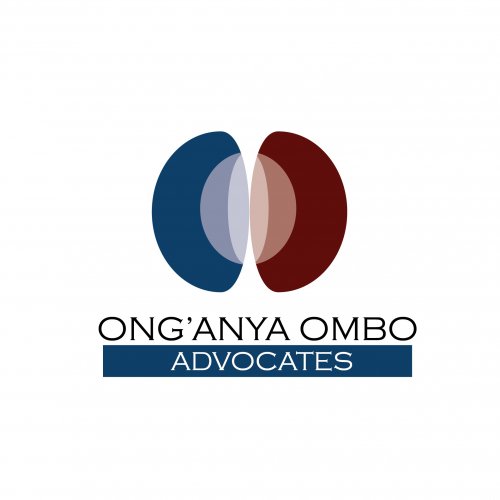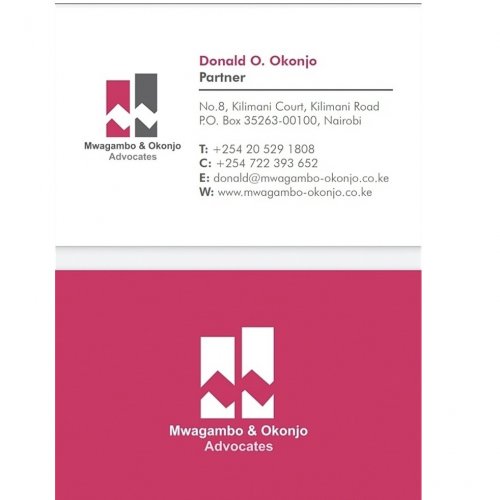Best Communications & Media Law Lawyers in Nairobi
Share your needs with us, get contacted by law firms.
Free. Takes 2 min.
List of the best lawyers in Nairobi, Kenya
Legal guides written by Adroit Law LLP:
- Kenya Launches Digital Nomad Visa: A Gateway for Remote Workers
- Navigating the Payment System License Maze in Kenya
- Navigating the Complexities of Mining Licenses and Permits in Kenya: A Look into Artisanal and Large-Scale Operations
About Communications & Media Law in Nairobi, Kenya
Communications & Media Law in Nairobi, Kenya, encompasses legal issues related to broadcasting, telecommunications, digital media, and freedom of expression. This area of law is rapidly evolving due to technological advancements and the growing importance of digital platforms. Key areas include content regulation, intellectual property, privacy rights, and defamation issues, all guided by both local statutes and international standards.
Why You May Need a Lawyer
There are several situations in which you might need legal assistance in Communications & Media Law:
- You're a journalist facing a defamation lawsuit or needing advice on press freedom and ethical publication.
- You're a media house dealing with content licensing issues, censorship, or compliance with broadcasting regulations.
- You're an individual or business needing guidance on social media regulations, online privacy concerns, or intellectual property rights.
- You're experiencing digital rights violations, such as unauthorized use of your content or data breaches.
Local Laws Overview
In Nairobi, Communications & Media Law is influenced by several key legislative frameworks and regulatory bodies:
- Kenya Information and Communications Act: This law governs the telecommunications and broadcasting sectors, setting standards for licensing, service provision, and consumer protection.
- Media Council Act: Establishes the Media Council of Kenya, which oversees journalists' ethical standards and manages complaints against media practitioners.
- Data Protection Act: Regulates the processing of personal data, ensuring privacy and protection for individuals online.
- National Cohesion and Integration Act: This act addresses hate speech and incitement in media content to promote peaceful coexistence among different communities.
Frequently Asked Questions
What is the role of the Communications Authority of Kenya?
The Communications Authority of Kenya is the regulatory body responsible for facilitating the development of the information and communications sector, including broadcasting, multimedia, telecommunications, and postal services.
How is defamation handled under Kenyan law?
Defamation in Kenya is addressed through both civil and criminal law. The affected party can file a lawsuit for damages, claiming that a publication has harmed their reputation without justification.
What protections exist for journalists in Nairobi?
Journalists are protected under laws promoting freedom of the press, such as the Media Council Act. However, they must adhere to ethical and legal standards to avoid issues like defamation suits or government sanctions.
How can I ensure compliance with data protection laws?
To comply with data protection laws, entities must collect and process personal data lawfully, transparently, and for legitimate purposes, ensuring appropriate security safeguards are in place.
Are there laws regulating social media content?
Yes, social media content is subject to anti-hate speech and defamation laws. Users must avoid posting content that incites violence or harms the reputations of individuals.
Can the government censor media content?
The government can regulate media content to some extent, particularly regarding national security, public morality, and the prevention of hate speech or incitement. However, such actions must align with constitutional protections of freedom of expression.
What should I do if my intellectual property rights are violated online?
If your intellectual property rights are infringed upon, you can seek legal recourse through the courts or file a complaint with relevant regulatory bodies like the Kenya Copyright Board.
What licenses are required to operate a media house in Nairobi?
Operating a media house requires obtaining licenses from the Communications Authority of Kenya, including broadcasting licenses for radio or television operations.
How is hate speech defined in Kenyan law?
Hate speech is defined as speech that stirs up ethnic hatred and violence. The National Cohesion and Integration Act criminalizes expressions that promote discrimination or violent actions against any community.
Are there limitations on advertising in Kenya?
Advertising must adhere to laws that prevent false claims, promote truthfulness, and protect consumers from misleading or harmful content. Regulatory bodies ensure advertisements comply with these standards.
Additional Resources
For further assistance or information, consider reaching out to the following resources:
- Media Council of Kenya: Offers resources for media professionals and handles media-related complaints.
- Communications Authority of Kenya: Provides guidance and regulations pertaining to communications and telecommunications.
- Kenya Copyright Board: Supports individuals in protecting their intellectual property rights.
- Data Protection Commissioner: Ensures compliance with data protection regulations and addresses any grievances related to data processing.
Next Steps
If you need legal assistance in Communications & Media Law, consider the following steps:
- Identify and clearly document the legal issue you are facing, including relevant communications or documents.
- Research and compile a list of qualified lawyers or legal firms specializing in Communications & Media Law in Nairobi.
- Schedule consultations with potential lawyers to discuss your case and understand their approach and fees.
- Choose a lawyer based on their expertise, experience, and your comfort with their communication style and proposed strategy.
- Stay actively involved in your case, providing all necessary information and maintaining open communication with your legal representative.
Lawzana helps you find the best lawyers and law firms in Nairobi through a curated and pre-screened list of qualified legal professionals. Our platform offers rankings and detailed profiles of attorneys and law firms, allowing you to compare based on practice areas, including Communications & Media Law, experience, and client feedback.
Each profile includes a description of the firm's areas of practice, client reviews, team members and partners, year of establishment, spoken languages, office locations, contact information, social media presence, and any published articles or resources. Most firms on our platform speak English and are experienced in both local and international legal matters.
Get a quote from top-rated law firms in Nairobi, Kenya — quickly, securely, and without unnecessary hassle.
Disclaimer:
The information provided on this page is for general informational purposes only and does not constitute legal advice. While we strive to ensure the accuracy and relevance of the content, legal information may change over time, and interpretations of the law can vary. You should always consult with a qualified legal professional for advice specific to your situation.
We disclaim all liability for actions taken or not taken based on the content of this page. If you believe any information is incorrect or outdated, please contact us, and we will review and update it where appropriate.







